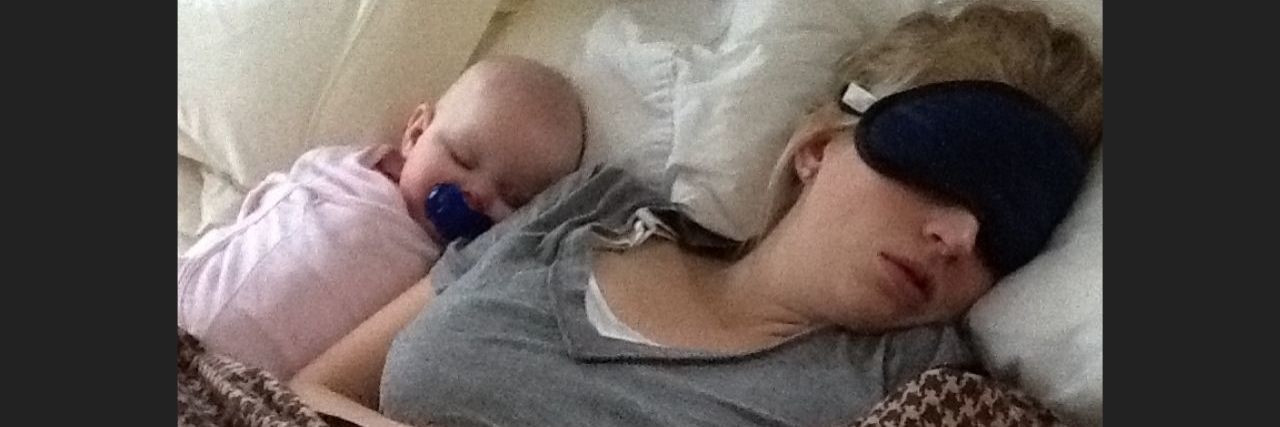How the Pandemic Has Shed Light on Parenting a Medically Complex Child
Editor's Note
If you have experienced emotional or physical abuse, the following post could be potentially triggering. You can contact the Crisis Text Line by texting “START” to 741741.
In early 2021, I started seeing news coverage on the impact of the pandemic on mothers. The New York Times published an article titled, “How Society Has Turned Its Back on Mothers: This isn’t just about burnout, it’s about betrayal.” “All Work No Pay,” ran in New York Magazine. The Daily Skimm dedicated its lead section on a newsletter, “Mother Load,” to dissecting the issue. These are just a sampling of the headlines, and amidst the reports, I kept thinking, this isn’t new for medically complex parents, particularly medically complex mothers; this is normal daily life.
Over a year ago, I wrote a blog post about living with uncertainty around the pandemic and how that idea isn’t foreign for medically complex parents. After a year of a global pandemic and our lives turned upside down, I think it’s safe to say that we all have a taste of what life is like living in the unfamiliar. When I read and listened to the coverage, I felt that same sentiment. I asked myself, “Is this an opportunity to make a parallel for people who can never understand what our life is like unless they live it? Is the entire world getting an idea of what it looks like to be a medically complex caregiver?”
Before the late 1960s, children with June’s medical conditions would have been institutionalized. Even after, though, there wasn’t much focus on in-home care and community support to the family. It wouldn’t be until the mid to late 1980s that institutions closed around the country, and public funding focused on community support for children with significant health needs.
June required around-the-clock care. I used to hear that phrase, “around-the-clock care,” and think, well, all children do, right? Yes, of course, but for June – and children like her – it is an entirely different story. Caring for June was like living with a newborn baby and an elderly person combined. But unlike a newborn, when June awoke, she didn’t go right back to bed after eating, a diaper change and a little rocking. June needed medicine, suctioning, diaper change, repositioning, rocking and bouncing and so much more. And unlike an elderly person, we didn’t have nurses or a nursing home to help us with her care. June required – on average – six or so medications administered two to three times a day. Some had to be taken six hours apart, others 12 hours apart, and it took a while to develop a system that made sense. We had a cabinet in our kitchen just for June’s medicine, and I had a schedule taped to the inside of the door. I would set up my tray, label the syringe, draw the medication and place it on the tray. Once I gave June the medicine, I put a checkmark next to my daily schedule to make sure I gave it to her and that I didn’t confuse it with another drug (you know, because that did happen). I learned how to take June’s blood pressure daily with a cuff and a doppler, I was a pro at swapping out feeding tube buttons, I took and tested urine samples, and I even learned how to give June shots three times a day in her legs for a few months. I used to speak in CCs and other medical jargon when talking to medical professionals. I felt like their equal – a self-appointed RN/MD … but I wasn’t.
When I met other moms to children with similar health needs as June, they were just as impressive in their nursing and MD skills as I was, if not more so. A few of us here in St. Louis used to get together regularly for dinner, and I felt so validated during those dinners. We shared resources and advice, but we spent a good chunk of the time swapping stories about how tired and burnt out we were. The hardest part was there was nothing to help us – no end in sight. All of us would gladly take care of our children, but no human being can survive this extreme lack of sleep and 24-hour caregiving. It felt more than burnout; it was simply too much pressure and responsibility for one family.
While I am so grateful June was born in 2012 and not 1912, our society has done a 180, and we are still failing these families. Back then, there was so much abuse and neglect, not to mention the torment of being separated from your child. Children born now are safer and better cared for at home, and I would never want to return to the way things were. But still, I don’t think we can go on as they are.
Medically complex parents have played many roles to their children besides mom or dad – nurse, physical therapist, occupational therapist, nutritionist – you name it, we’ve done it. Many are not technically qualified for these esteemed positions, but we have learned the skills, a form of intense on-the-job training, I guess you could say. All parents now are experiencing similar challenges. We have had to be everything to our children in the pandemic, and it is too much. It can feel unbearable. Now that we all understand what this intense overwhelm feels like, I hope we can keep medically complex families in mind as we develop solutions to remedy this intense overwhelm on parents, particularly mothers. At some point, life will return to normal for most of us, but for others, this overwhelm will be business as usual.
Photo submitted by contributor.

